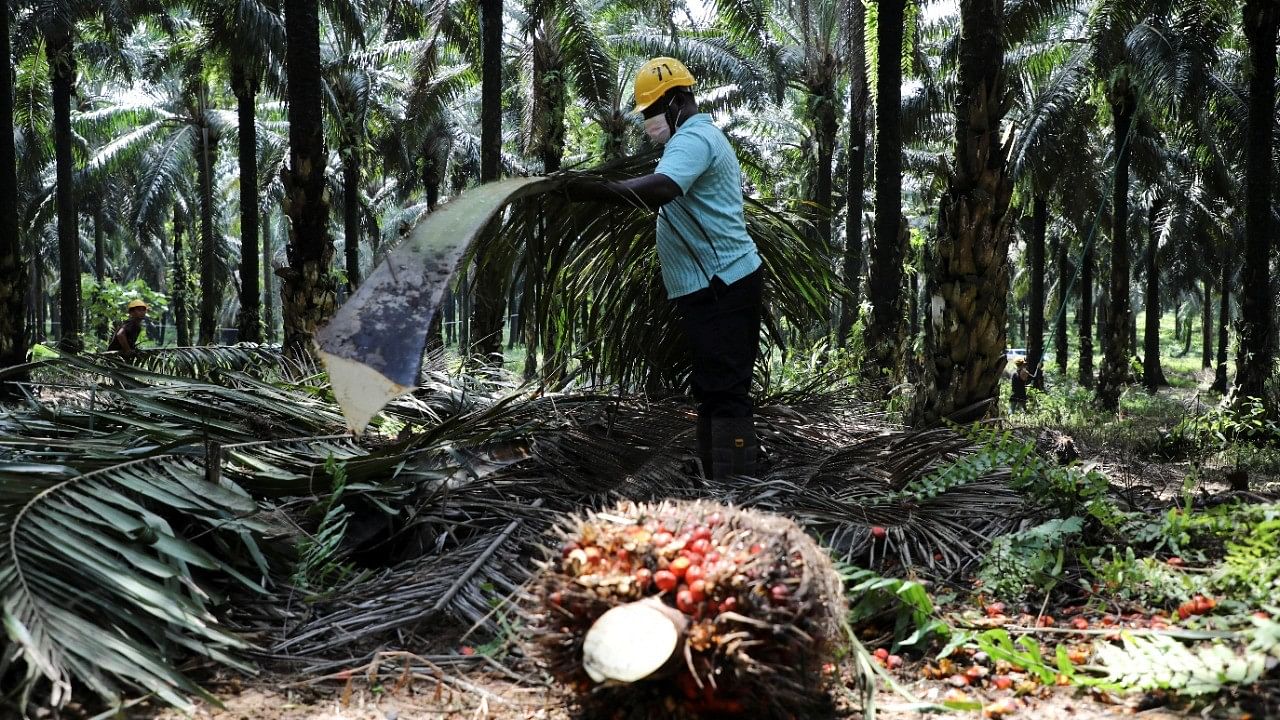
Representative image of a tree plantation on degraded forest land.
Credit: Reuters File Photo
New Delhi: Any individual or private entity can now undertake plantations on degraded land, including open forests and scrub land, wasteland and catchment areas, and earn green credits that can be traded and serve as a metric for corporate social responsibility, the Union Environment Ministry has said.
Launched in October, the Green Credit Programme is a market-based mechanism rewarding different voluntary environmental actions by individuals, communities and the private sector.
The Centre notified the methodology for calculation of green credits in respect of tree plantation on February 22.
Some environmental policy experts, however, have termed the methodology 'unscientific', saying it completely ignores the ecological aspects of forests.
The Forest department of each state and Union Territory will identify degraded land, including open forests and scrub land, wasteland and catchment areas, under their administrative control and management.
These identified lands can be made available to individuals, corporations and other private entities for tree plantation for increasing green cover and generating tradable green credits.
The notification said the identified land parcels must be free from all encumbrances and should have a size of five hectares or more.
Individuals or entities interested in undertaking tree plantation for generating green credits can apply to the administrator -- the Indian Council of Forestry Research and Education (ICFRE) -- responsible for implementation of the Green Credit programme.
Upon receiving an application, the administrator will identify suitable land parcels and assign them to the applicant who will be then required to submit a proposal for undertaking tree plantation, which is a prerequisite for generating green credits.
The administrator will issue a demand note to the applicant, specifying the cost of tree plantation and any administrative expense.
Once the payment is received, the administrator will instruct the Forest department to carry out tree plantation based on the management plan or working plan.
The plantation must be completed within two years from the date of payment, the notification said.
Upon completion of tree plantation, the Forest department will submit a report to the administrator and issue a certificate of completion to the applicant.
The administrator will then evaluate and verify the tree plantation activity based on the report and the certification.
Green credits generated for the applicant will be calculated at the rate of one credit per tree, subject to a minimum density of 1,100 trees per hectare, based on the local silvi-climatic and soil conditions.
The notification said the green credits generated can be exchanged for 'meeting the compliance of the compensatory afforestation in case of diversion of forest land for non-forestry purposes under the Van (Sanrakshan Evam Samvardhan) Adhiniyam, 1980'.
These green credits can be utilised for reporting purposes under environmental, social and governance indicators or for corporate social responsibility, as specified by applicable laws.
Vidhi Centre for Legal Policy's Climate & Ecosystems Lead Debadityo Sinha termed the methodology 'unscientific', saying it completely ignores the ecological aspects of forests.
'Referring to open forests, scrubland and catchment areas as 'degraded' land parcels is vague. Incentivising industrial-scale plantations in such areas will irreversibly alter soil quality, replace local biodiversity and might be disastrous for local ecosystem services,' he said.
Sinha mentioned that there are enough examples to show that the plantations undertaken by states in most dry areas have been ecologically disastrous, causing the extinction of local flora and fauna that have evolved over millions of years in particular biogeographic zones. Sometimes, these plantations even escalate droughts and soil erosion, he said.
'Furthermore, these plantations involve digging several metres-deep trenches, which has caused the deaths of several wild animals like deer, apart from damaging the soil layer and disrupting the ecosystem's role,' he said.